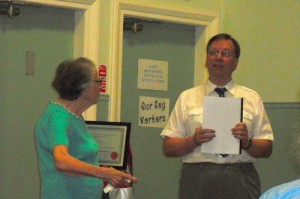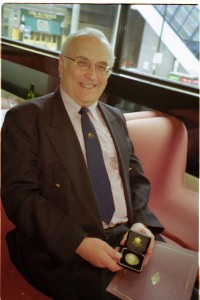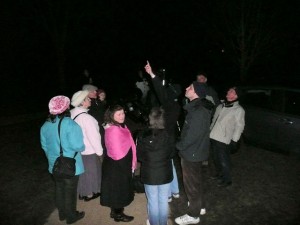Next Meetings
ZoomFridays
Friday 4th July 2025 at 8pm
Chat with us on ZOOM on the 1st Friday of the month at 8pm.
Once a month at 8 pm on the first Friday each month we will be chatting with members about any astronomical topics and keeping up with the latest in academic and space industry news. At the same time the content of the chats will be written up in .pdf form and released as a monthly round up for members. They will contain a lot of links to professional and academic content and form a part of the story of astronomy and space industry activity as we go forward. A great way to keep up to date with ‘WHAT’S NEW IN ASTRONOMY’
Check out the ZOOMFridays page for more details:- ZOOMFridays
FridayCLUB – Next Meeting August 22nd
—————-Summer Break——————–
We are taking a Summer Break with our FridayCLUB outreach meetings. There are no FridayCLUB outreach meetings in May, June or July. The Sky is very bright during the summer months (May,June,July) making observing with telescopes highly challenging in the early evening. We will restart the meetings on 22nd August 2025. Please put this date in your diary’s as we would love to see you there.
When we restart we will have short talks about astronomy and weather permitting a view of the sky through a telescope what could be better – All Free just come along on the evening. See our FridayCLUB page for details of location and start times.
Enquiries to info@readingastro.org.ukLocation : 1st Wokingham Scout Hut in Evendons Lane, Wokingham. RG41 4DX.
Monthly Main Meeting.
September 20th 2025 7 pm
St Peter’s Church HallThis will be a physical meeting in the hall with remote access via ZOOM. Non-members, having enjoyed the talk, donate £5 via online banking:
Reading Astronomical Society: Sort code: 60-17-21: Account No: 54137268This is the first meeting of the new season. We will publish next sessions Main Monthly talks over the summer period.
Subject:- To Be Confirmed (TBC).
Guest Speaker: TBC
Astronomy chat by experts and beginners with members of local astronomy societies.
Request login details from Gerry by text on 07510 444 630 or email us at info@readingastro.org.ukWe also keep in touch through a Google Group, email news list, and Zoom.
By invitation – send an email to info@readingastro.org.uk
Communicating Astronomy (Malcolm’s Notes)
Main Meeting – October 15th
The easiest place to find this material is Antarctica, but not the easiest to travel to! She has a 3 minute précis on living in Antarctica on YouTube….
There will be short talks in the second half of the meeting on recent activities of our members.
Jupiter: Remember throughout the autumn and early winter we will have nightly views of this giant planet. Now is the time to get out the telescope or binoculars.
Here’s the best brief guide to observing Jupiter’s moons….
http://www.skyandtelescope.com/observing/objects/planets/3307071.html
The evening is free to first attenders. We hope you will become a regular member of course!
Reading Astronomical Society
https://www.readingastro.org.uk
Main venue: St Peters Church Hall, Church Rd. Earley, Reading, RG6 1EY
GPS: 51.443891° -0.928940°
Meeting starts at 7.00pm.
2011/12 Session Starts Here
The Reading Astronomical Society holds the first of the season’s main meetings next Saturday, 17th September at the usual venue, and just less than a week later the AstroBASICS section hold the first of the season’s sessions for beginners and practical hobbyists. All sessions are at St. Peter’s Church Hall, Church Road, Earley, Reading, RG6 1EY.
Please note the AstroBASICS sessions are in the upstairs hall and are regretfully not accessible by wheelchair.
The speaker at the meeting of Saturday 17th will be Professor Mike Hapgood from Rutherford Appleton Laboratory. Mike’s subject will be space weather.
Space weather is the popular term for variations in the stream of energetic and electrically charged particles emanating from the sun.
We make no apologies for repeating this important subject. The sun is embarking on another few years of sunspot activity and each time this happens the human race is depending on more and more vital electronics installed for all manner of functions. It remains to be seen how our electronic infrastructure will stand up to the next big solar storm. http://en.wikipedia.org/wiki/Solar_storm_of_1859
The AstroBASICS session of Friday 23rd will have a talk on observing the sky. How much or how little equipment you need to consider yourself an amateur astronomer. How we report events or phenomena in the sky, and how to avoid being misquoted in the media! We have a wonderful 3 minutes of Richard and Judy which we will inflict on our guests!
Our AstroBASICS accommodation this year is so much more inviting so, for those who can stay a little longer, we are hoping to extend the evenings to extra talks and demos for when we cannot observe outside.
Venue: St. Peter’s Church Hall, Church Road, Earley, Reading, RG6 1EY
http://tinyurl.com/38qxd3w
GPS: 51.443891° -0.928940°
Main meetings start at 7.00pm. 3rd Saturday except July and August.
AstroBASICS sessions are in the upstairs rooms: Open from 7.00pm for 7.30 start. 4th Friday except July and August.
Jupiter Star Party
What: Jupiter Star Party.
Where: Thatcham Nature Discovery Centre. map
Newbury Amateur Astronomical Society are present at an evening of science devoted to the planet Jupiter
The Thatcham Nature Discovery Centre is a great venue beside a the lake and if clear the NAAS will appreciate the help of our society’s usual public star party enthusiasts. If you are just an astronomy addict or need somewhere to take the kids you are welcome as a guest of course.
More info from gerry.bond@readingastro.org.uk
BADAS Trip – 3rd August
Following the untimely death of Andrew on 28 Nov 2010 and having been honoured by the IAU in naming asteroid 229255 Andrewelliott, Chris Menmuir and Gerry Bond from Reading attended the BADAS meeting of 3rd Aug 2011. Some of Andrew’s videos and results were shown, and talk about the man himself and how he inspired so many. Edna Elliott, Andrew’s mother, was guest of honour.

Edna receiving honorary membership from Chairman Ray Smith
Autumn 2011 sessions with BSA and Newbury AAS
Thanks are due to the Newbury Amateur Astronomical Society as the organizers.
Asteroid (229255) Andrewelliott
— On Fri, 20/5/11, BAA electronic bulletins service <baa-ebulletin@britastro.org> wrote:
From: BAA electronic bulletins service <baa-ebulletin@britastro.org>
Subject: [BAA-ebulletin 00581] Asteroid (229255) Andrewelliott
To: “BAA e-bulletin list” <baa-ebulletin@britastro.org>
Date: Friday, 20 May, 2011, 0:39
======================================================================
BAA electronic bulletin
======================================================================
I am very pleased to announce that an asteroid, discovered by Peter
Birtwhistle in 2005, has now been named in posthumous recognition of Andrew
Elliott’s contributions to amateur astronomy.
The citation, published in the Minor Planet Circular MPC 75105 on May 17,
reads as follows:
(229255) Andrewelliott = 2005 AJ
Discovered 2005 Jan. 4 by P. Birtwhistle at Great Shefford.
Andrew John Elliott (1946-2010) was a British observer who pioneered the
use of low-light devices, precision timing and video methods in observing
short-lived phenomena. Assistant director for occultations of the British
Astronomical Association Lunar and Asteroids Sections, he lectured widely
in the UK and Europe.
Andrew sadly passed away on 2010 November 28. The announcement nicely
coincides with the publication in the next few days of the June issue of the
Journal of the British Astronomical Association where you can read Andrew’s
obituary on pages 176-178.
Rest in peace dear friend.
Richard Miles
Director, Asteroids and Remote Planets Section
arps [at] britastro.org
2011 May 19
The Dinton Pastures Era
The final evening’s BASICS session at Dinton Pastures was well attended. No more are planned at that location and we wait to see if the local authority want to invite us for official events in the future.
Brian’s Bounce – otherwise known as the Brian Cox Effect – is still in full swing as we had 33 attenders tonight and a small forest of hands declared attending for the first time. It will be interesting to see how meeting at St Peter’s hall changes things. It should be better on cold winter’s nights and much more accessible. So it is a good moment to thank our helpers and the members who attend to chat with the guests after the talk. This is very important and often solves technical problems or just breaks the ice socially and encourages joining the society.
We must also thank Dinton Pastures’ staff for the past 20 years of events of one sort or another. The park is still available to the public and amateur astronomy in its simplest form is just somewhere to stand and something to look at. In fact it must be the only activity which could be engaged in by half the entire population of the world simultaneously without causing traffic jams or a run on the banks 🙂
Clear skies!
Gerry, Peter, Malcolm, Alun et al.
Observing with Newbury AAS in Wilcot
Here is info on the site for future reference.
1. The 5-day local weather.
2. Camping is possible at the Golden Swan .
Thanks are due to the Newbury Astronomical Society as the organizers.
Map for Wilcot Village Hall. The Golden Swan is further south on same street.
[map w=”600″ h=”400″ z=”13″ lat=” 51.349883″ lon=” -1.797092″ marker=”yes” infowindow=”Wilcot Village Hall”]
Telescope Night and British Science Association Exhibition
Although it clouded over during the evening all the guests had good views of the planet Mars and other sky objects. Many thanks to the volunteers of the British Science Association for the exhibition and the tea and coffee provided and the welcome shelter from the cold.
The cloud cover helped the large attendance for the astronomy slide show in the Emmbrook Room later. As always it was the Hubble Deep-Field image that sent everyone home impressed.
Before the clouds there were several telescopes pointing at sky objects. We also had the excitement of seeing the ISS pass overhead and disappearing into the Earth’s shadow.
The evening was part of Reading Science Week 2010.


